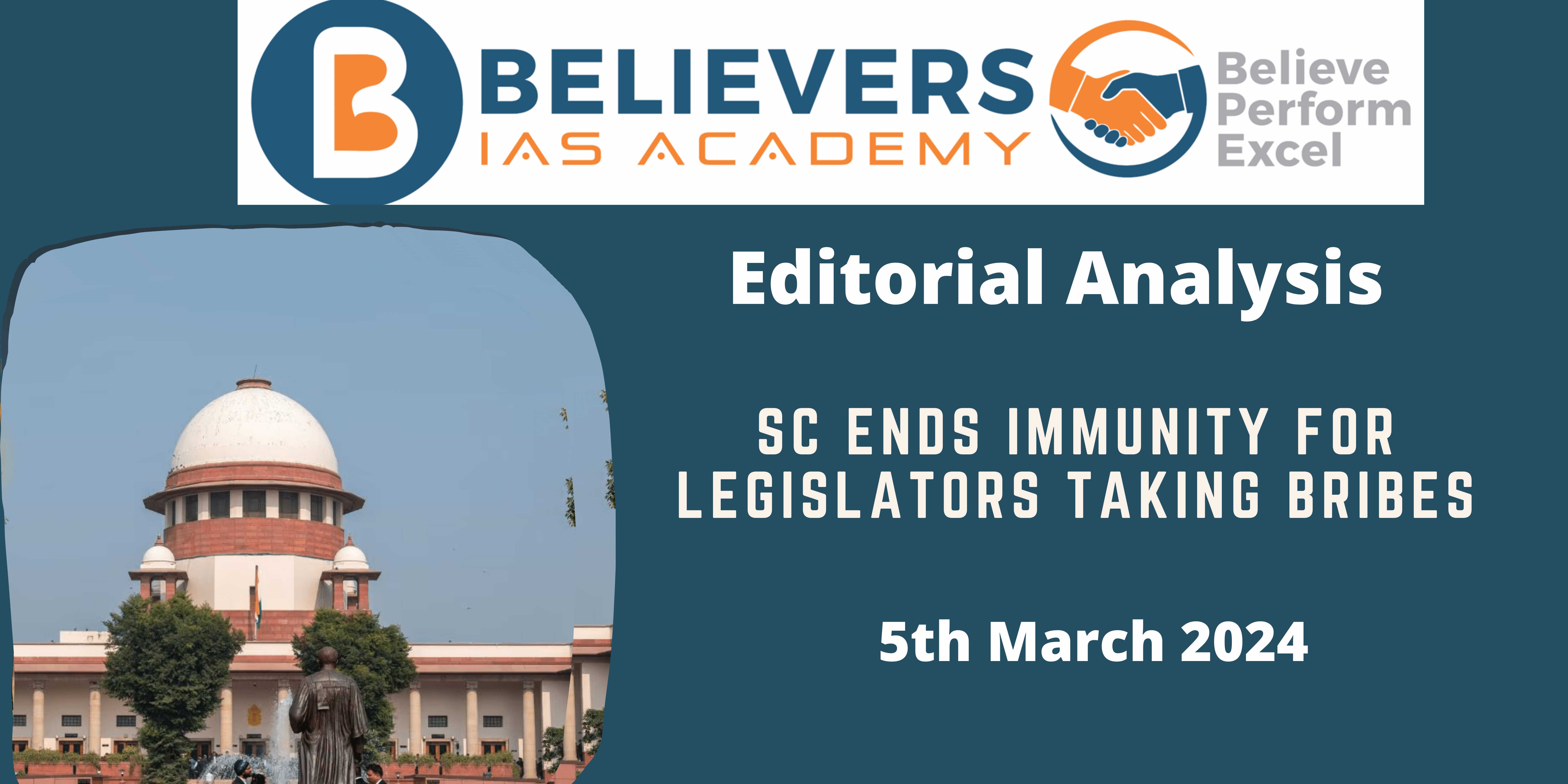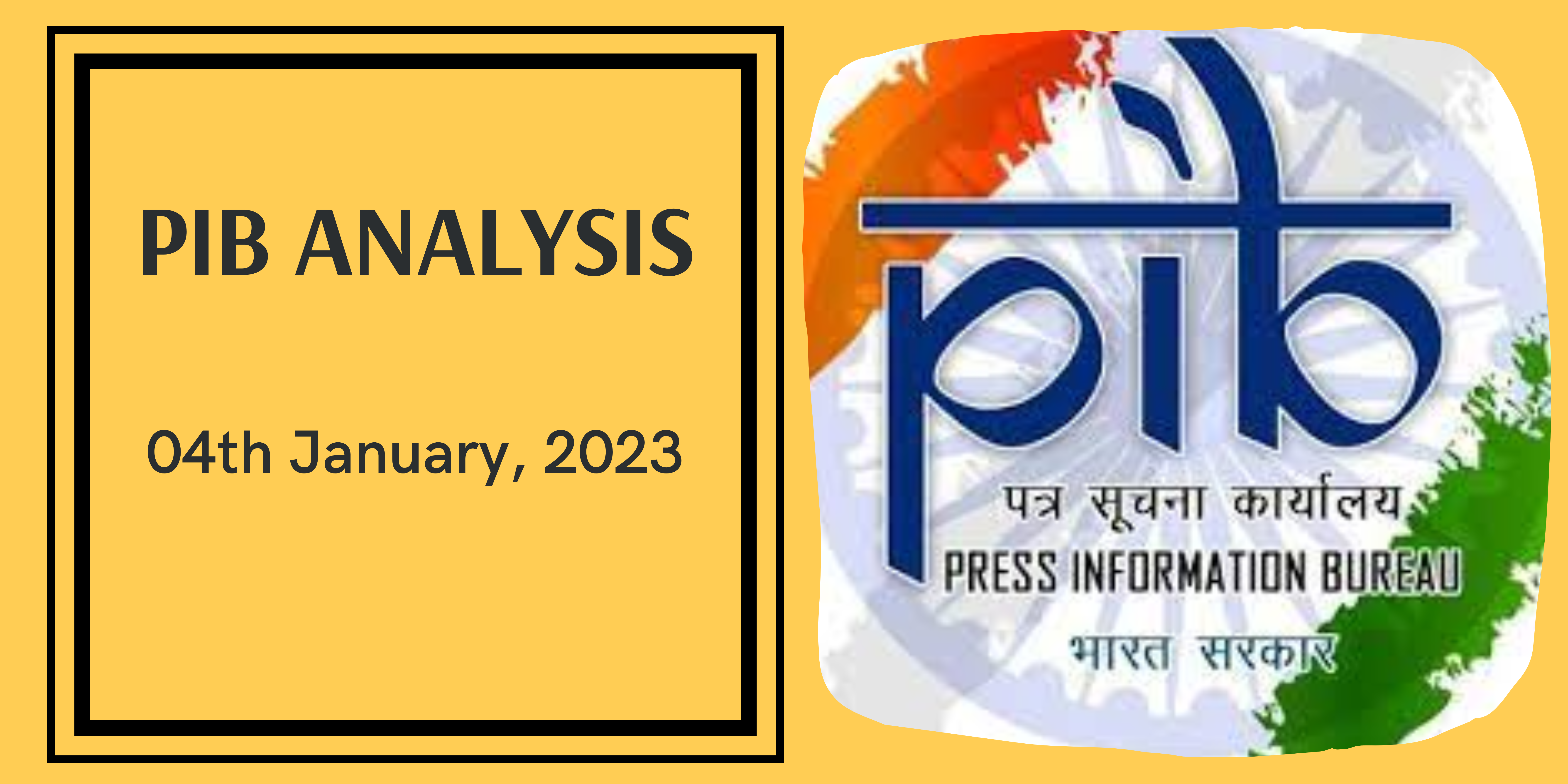SC ends immunity for legislators taking bribes
Context:
The Supreme Court declared that legislators taking bribes for votes or speeches in Parliament or State Legislative Assemblies are not protected by parliamentary privilege from criminal prosecution.
- The unanimous verdict overturned a 25-year-old ruling that granted immunity to lawmakers involved in bribery.
Context:
GS-02 (Supreme court, Parliament)
Key Highlights:
- The judgment emphasizes that corruption undermines the foundation of Indian parliamentary democracy and legislators must be held accountable for bribery.
- A significant ruling by a seven-judge Bench of the Supreme Court has shaken the legal landscape concerning parliamentary immunity.
- The verdict unequivocally states that legislators cannot seek refuge in parliamentary privilege to evade criminal prosecution for accepting bribes related to their parliamentary duties.
Impact on Legislative Accountability:
- The judgment marks a departure from a longstanding precedent set by the Supreme Court in the JMM bribery case of 1998.
- The previous ruling, which granted immunity to lawmakers involved in bribery, has been deemed erroneous by the current Bench.
- The court’s decision underscores the critical importance of holding legislators accountable for corrupt practices that undermine the principles of representative democracy.
Chief Justice’s Observations:
- Chief Justice of India D.Y. Chandrachud, who authored the unanimous verdict, emphasized the gravity of bribery in the legislative process.
- He clarified that the acceptance of bribes by lawmakers constitutes a criminal offense, irrespective of whether they proceed to vote or speak in Parliament or State Legislative Assemblies.
- The judgment highlights that parliamentary immunity does not shield legislators from accountability for acts of corruption.
Interpretation of Parliamentary Immunity:
- The Supreme Court delineated a twofold test to determine the applicability of parliamentary privilege.
- Legislators can claim immunity only if their actions contribute to enhancing the dignity and authority of the House and its members collectively, or if they exercise their rights to free speech and protest.
- However, immunity cannot be invoked to shield lawmakers from prosecution for bribery, as it would undermine the rule of law and the principles of democracy.
What are Parliamentary Privileges?
- Parliamentary privileges are the rights and immunities granted to Members of Parliament (MPs) in India, empowering them to execute their duties and functions without hindrance or coercion.
- Sources: Constitution of India, parliamentary conventions, legislation enacted by Parliament, rules established by the Lok Sabha and Rajya Sabha, and judicial interpretations.
- Constitutional Framework: Article 105 of the Indian Constitution delineates parliamentary privileges that protects MPs from civil or criminal liability for statements made or actions taken in the discharge of their duties.
- Coterminous with Membership: These privileges are operative solely during an individual’s tenure as a parliamentary member, ceasing once their membership concludes. They are indispensable for conducting proceedings and functions in an orderly and uninterrupted manner.
- However, it’s crucial to recognize that parliamentary privileges are not absolute and are subject to limitations.
- MPs are expected to wield their privileges judiciously, refraining from their misuse for personal gain.
The Importance of Parliamentary Privileges in the Indian Parliament:
- Parliamentary privileges play a pivotal role in the legislative process by safeguarding the independence and integrity of the legislative body. These privileges are designed to uphold lawmakers’ freedom of speech and action.
- By granting immunity from arrest and legal proceedings, parliamentary privileges empower MPs to fulfill their duties without fear of coercion or obstruction.
- Moreover, privileges such as confidentiality and access enable MPs to gather and disseminate vital information essential for informed decision-making.
- It acts as a vital component of the checks and balances that preserve the autonomy and probity of democratic institutions, ensuring their effective functioning.




